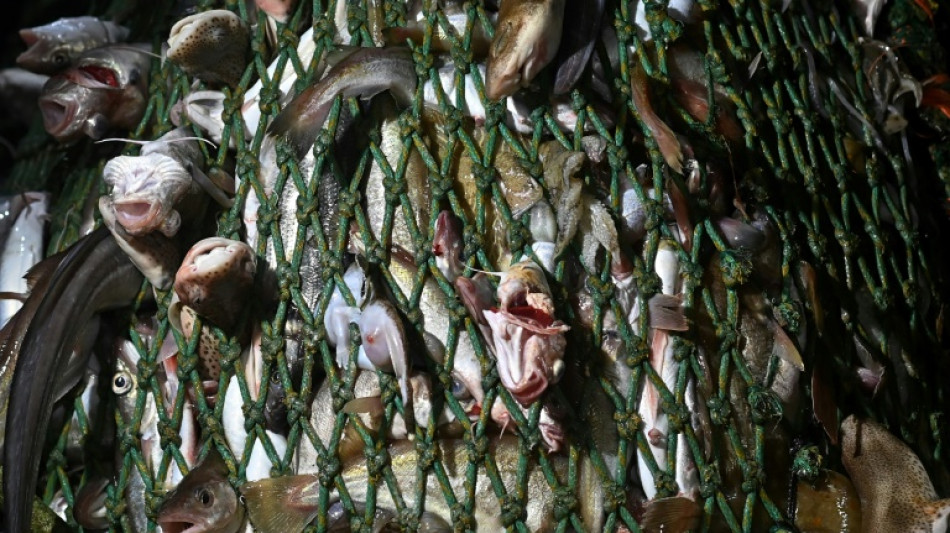
-
 Former player comes out as bisexual in Australian Rules first
Former player comes out as bisexual in Australian Rules first
-
Indian spin great Ashwin calls time on IPL career

-
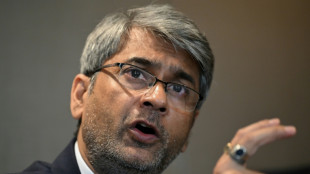 India faces world football ban for second time in three years
India faces world football ban for second time in three years
-
Globetrotter Herzog to get special Venice award

-
 'Old things work': Argentines giving new life to e-waste
'Old things work': Argentines giving new life to e-waste
-
Showtime for Venice Film Festival, with monsters, aliens, Clooney and Roberts

-
 Thai woman jailed for 43 years for lese-majeste freed
Thai woman jailed for 43 years for lese-majeste freed
-
What is swatting? Shooting hoaxes target campuses across US

-
 Row over Bosnia's Jewish treasure raising funds for Gaza
Row over Bosnia's Jewish treasure raising funds for Gaza
-
Police search Australian bush for gunman after two officers killed
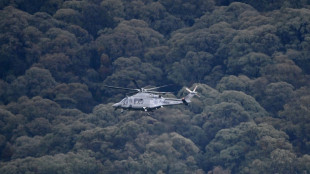
-
 NZ rugby player who suffered multiple concussions dies aged 39
NZ rugby player who suffered multiple concussions dies aged 39
-
Former Australian Rules player comes out as bisexual in first

-
 French, German, Polish leaders to visit Moldova in show of force in face of Russia
French, German, Polish leaders to visit Moldova in show of force in face of Russia
-
US tariffs on Indian goods double to 50% over Russian oil purchases

-
 Feudal warlord statue beheaded in Japan
Feudal warlord statue beheaded in Japan
-
Tokyo logs record 10 days of 35C or more

-
 Sinner, Swiatek romp through at US Open as Gauff struggles
Sinner, Swiatek romp through at US Open as Gauff struggles
-
Brazil to face South Korea, Japan in World Cup build-up

-
 Asian markets diverge with eyes on Nvidia earnings
Asian markets diverge with eyes on Nvidia earnings
-
Osaka out to recapture sparkle at US Open

-
 China's rulers push party role before WWII anniversary
China's rulers push party role before WWII anniversary
-
Pakistan's monsoon misery: nature's fury, man's mistake
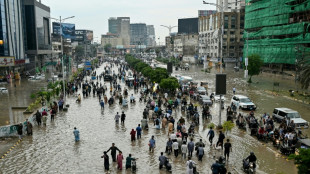
-
 SpaceX answers critics with successful Starship test flight
SpaceX answers critics with successful Starship test flight
-
Nightlife falls silent as Ecuador's narco gangs take charge

-
 Unnamed skeletons? US museum at center of ethical debate
Unnamed skeletons? US museum at center of ethical debate
-
France returns skull of beheaded king to Madagascar

-
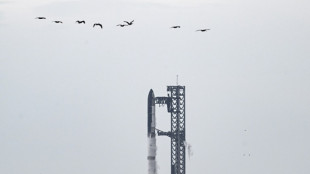 SpaceX's Starship megarocket launches on latest test flight
SpaceX's Starship megarocket launches on latest test flight
-
US restaurant chain Cracker Barrel cracks, revives old logo

-
 Brazil's Bolsonaro placed under 24-hour watch ahead of coup trial verdict
Brazil's Bolsonaro placed under 24-hour watch ahead of coup trial verdict
-
Taylor-Travis love story: 5 things to know

-
 Sports world congratulates Swift and Kelce on engagement
Sports world congratulates Swift and Kelce on engagement
-
Wolves inflict more woe on West Ham, Leeds crash out League Cup

-
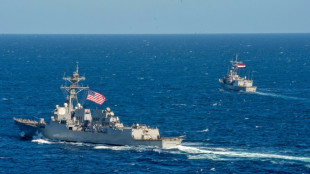 Venezuela deploys warships, drones as US destroyers draw near
Venezuela deploys warships, drones as US destroyers draw near
-
French political turmoil sends European stocks down, Wall Street edges up

-
 Sinner, Swiatek romp through at US Open
Sinner, Swiatek romp through at US Open
-
Meta to back pro-AI candidates in California

-
 Yankees-Giants set for earliest US MLB opener in 2026 schedule
Yankees-Giants set for earliest US MLB opener in 2026 schedule
-
Messi will be game-day decision for Miami in Leagues Cup semis

-
 'Swiftie' Swiatek swats Arango, talks Taylor & Travis engagement
'Swiftie' Swiatek swats Arango, talks Taylor & Travis engagement
-
New era: Taylor Swift and Travis Kelce announce engagement

-
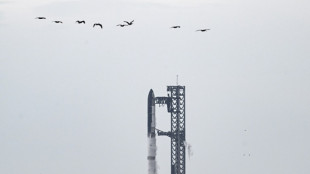 SpaceX set once more for Starship test flight
SpaceX set once more for Starship test flight
-
Sinner begins US Open defence with quick win

-
 Who is Lisa Cook, the Fed governor Trump seeks to fire?
Who is Lisa Cook, the Fed governor Trump seeks to fire?
-
Masters updates qualifying criteria to add six national opens

-
 New era unlocked: Taylor Swift and Travis Kelce announce engagement
New era unlocked: Taylor Swift and Travis Kelce announce engagement
-
Israeli protesters demand hostage deal as cabinet meets

-
 Trump to seek death penalty for murders in US capital
Trump to seek death penalty for murders in US capital
-
Taylor Swift and Travis Kelce announce engagement
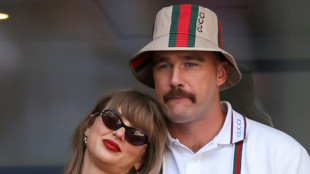
-
 Swiatek swats Arango, Sinner launches US Open defence
Swiatek swats Arango, Sinner launches US Open defence
-
Swiatek swats Arango to reach US Open second round


World coming up short on promised marine sanctuaries
A global target of having 30 percent of the oceans become protected areas by 2030 is looking more fragile than ever, with little progress and the United States backing away, conservationists say.
"With less than 10 percent of the ocean designated as MPAs (marine protected areas) and only 2.7 percent fully or highly protected, it is going to be difficult to reach the 30 percent target," said Lance Morgan, head of the Marine Conservation Institute in Seattle, Washington.
The institute maps the MPAs for an online atlas, updating moves to meet the 30 percent goal that 196 countries signed onto in 2022, under the Kunling-Montreal Global Biodiversity Framework.
The ambition is notably at risk because "we see countries like the US reversing course and abandoning decades of bipartisan efforts" to protect areas of the Pacific Ocean, Morgan said.
That referred to an April executive order by President Donald Trump authorising industrial-scale fishing in big swathes of an MPA in that ocean.
Currently, there are 16,516 declared MPAs in the world, covering just 8.4 percent of the oceans.
But not all are created equal: some forbid all forms of fishing, while others place no roles, or almost none, on what activities are proscribed or permitted.
"Only a third of them have levels of protection that would yield proper benefits" for fish, said Joachim Claudet, a socio-ecology marine researcher at France's CNRS.
Daniel Pauly, a professor of fisheries science at Canada's University of British Columbia, said "the marine protected areas have not really been proposed for the protection of biodiversity" but "to increase fish catches".
A proper MPA "exports fish to non-protected zones, and that should be the main reason that we create marine protected areas -- they are needed to have fish", he said.
When fish populations are left to reproduce and grow in protected areas, there is often a spillover effect that sees fish stocks outside the zones also rise, as several scientific journals have noted, especially around a no-fishing MPA in Hawaiian waters that is the biggest in the world.
One 2022 study in the Science journal showed a 54 percent in crease in yellowfin tuna around that Hawaiian MPA, an area now threatened by Trump's executive order, Pauly said.
- Fishing bans -
For such sanctuaries to work, there need to be fishing bans over all or at least some of their zones, Claudet said. But MPAs with such restrictions account for just 2.7 percent of the ocean's area, and are almost always in parts that are far from areas heavily impacted by human activities.
In Europe, for instance, "90 percent of the marine protected areas are still exposed to bottom trawling," a spokesperson for the NGO Oceana, Alexandra Cousteau, said. "It's ecological nonsense."
Pauly said that "bottom trawling in MPAs is like picking flowers with a bulldozer... they scrape the seabed".
Oceana said French MPAs suffered intensive bottom trawling, 17,000 hours' worth in 2024, as did those in British waters, with 20,600 hours. The NGO is calling for a ban on the technique, which involves towing a heavy net along the sea floor, churning it up.
A recent WWF report said that just two percent of European Union waters were covered by MPAs with management plans, even some with no protection measures included.
The head of WWF's European office for the oceans, Jacob Armstrong, said that was insufficient to protect oceanic health.
Governments need to back words with action, he said, or else these areas would be no more than symbolic markings on a map.
E.Qaddoumi--SF-PST
